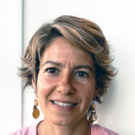Speakers
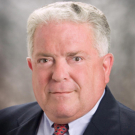
Amb. Chas W. Freeman
American Diplomat and Writer
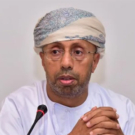
Abdullah Baabood
Visiting Professor and Chair of the State of Qatar for Islamic Area Studies
School of International Liberal Studies, Waseda University

Jennifer Kavanagh
Senior Fellow, American Statecraft Program
Carnegie Endowment for International Peace
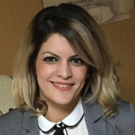
Maria Papageorgiou
Associate Lecturer
University College London
Moderator
About the Webinar
China has traditionally avoided the Middle East in its foreign policy strategy, primarily due to the region’s political instability, and especially when it comes to its own global economic ambitions. However, in the last few years China has been stepping up its investments in the Middle East and North Africa (MENA), not only in terms of economic development but also in arms trade, security engagements, technological and urban infrastructures, and most importantly, in diplomatic efforts and conflict mediation. The most prominent power play came when Beijing brokered a Saudi-Iran agreement in March 2023, which put it on the political map in the MENA region and surprised the United States and other great powers. Chinese officials have also expressed interest in mediating the Israeli-Palestinian conflict, presented a peace proposal for Russia’s war in Ukraine, and alluded to plans for renewing the Iran nuclear deal. Recently, contacts and visits between China and the Arab world have become more frequent. And unlike other international actors, China brings no human rights demands or democracy concerns to its dealings with foreign governments, which is appealing to the region’s autocratic regimes.
Arab Center Washington DC (ACW) convened a panel of experts to discuss China’s evolving foreign policy and its increased engagements in the MENA region. Panelists were Chas W. Freeman, Writer and Former American Diplomat and Ambassador; Abdullah Baabood, Visiting Professor, School of International Liberal Studies, Waseda University, Japan; Patricia Karam, Non-resident Fellow, Arab Center Washington DC; Jennifer Kavanagh, Senior Fellow, American Statecraft Program at the Carnegie Endowment for International Peace; and Maria Papageorgiou, Associate Lecturer at University College, London. ACW Executive Director Khalil E. Jahshan moderated the event.
Chas W. Freeman provided introductory remarks about what he called the American “monomaniacal obsession” with China and its relations with states around the world, including those in the Middle East. He said that this US policy ignores the stark fact that all states in the region have already opened up to China despite their old relations with the United States.
Patricia Karam covered China’s approach to its relations with the Middle East from the perspective of great power competition that has become acute and pressing. Karam asserted that China has emphasized economic relations because it believes that they can be the right basis for long-term stability.
Abdullah Baabood discussed China-Gulf relations from the perspective of the Gulf states, saying that they see that the center of gravity of economic activity has shifted eastward from the Atlantic. Baabood emphasized the point that Gulf states are looking for stable markets because of their hedging strategies, and these markets are principally in Asia.
Maria Papageorgiou focused on China’s attempt to increase its sales of military hardware in the Middle East region which helps it project power around the world. Papageorgiou stated that China is a late comer to this issue and cannot be considered to be a major competitor to the United States.
Jennifer Kavanagh covered the implications of China’s presence and relations in the Middle East on US policy and interests. Asserting that the United States is not pivoting away from the region, Kavanagh said that the biggest change that can be noticed in the Middle East is a “multi-alignment” according to which the region’s states seek relations with many power centers around the world.
Keynote Speaker
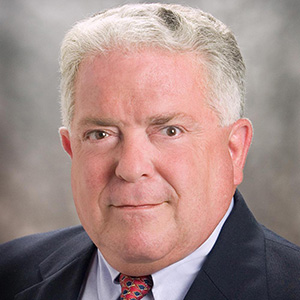 Ambassador Freeman is a career diplomat (retired) who was Assistant Secretary of Defense for International Security Affairs from 1993–94, earning the highest public service awards of the Department of Defense for his roles in designing a NATO-centered post-Cold War European security system and in reestablishing defense and military relations with China. He served as US Ambassador to Saudi Arabia (during operations Desert Shield and Desert Storm). He was also Principal Deputy Assistant Secretary of State for African Affairs during the historic US mediation of Namibian independence from South Africa and the Cuban troop withdrawal from Angola. Ambassador Freeman worked as Deputy Chief of Mission and Chargé d’Affaires in the American embassies at Bangkok (1984-1986) and Beijing (1981-1984). He was Director for Chinese Affairs at the US Department of State (1979-1981) and the principal American interpreter during late President Nixon’s path-breaking visit to China in 1972. In addition to his Middle Eastern, African, East Asian, and European diplomatic experience, he had a tour of duty in India.
Ambassador Freeman is a career diplomat (retired) who was Assistant Secretary of Defense for International Security Affairs from 1993–94, earning the highest public service awards of the Department of Defense for his roles in designing a NATO-centered post-Cold War European security system and in reestablishing defense and military relations with China. He served as US Ambassador to Saudi Arabia (during operations Desert Shield and Desert Storm). He was also Principal Deputy Assistant Secretary of State for African Affairs during the historic US mediation of Namibian independence from South Africa and the Cuban troop withdrawal from Angola. Ambassador Freeman worked as Deputy Chief of Mission and Chargé d’Affaires in the American embassies at Bangkok (1984-1986) and Beijing (1981-1984). He was Director for Chinese Affairs at the US Department of State (1979-1981) and the principal American interpreter during late President Nixon’s path-breaking visit to China in 1972. In addition to his Middle Eastern, African, East Asian, and European diplomatic experience, he had a tour of duty in India.
*Featured image credit: SPA

